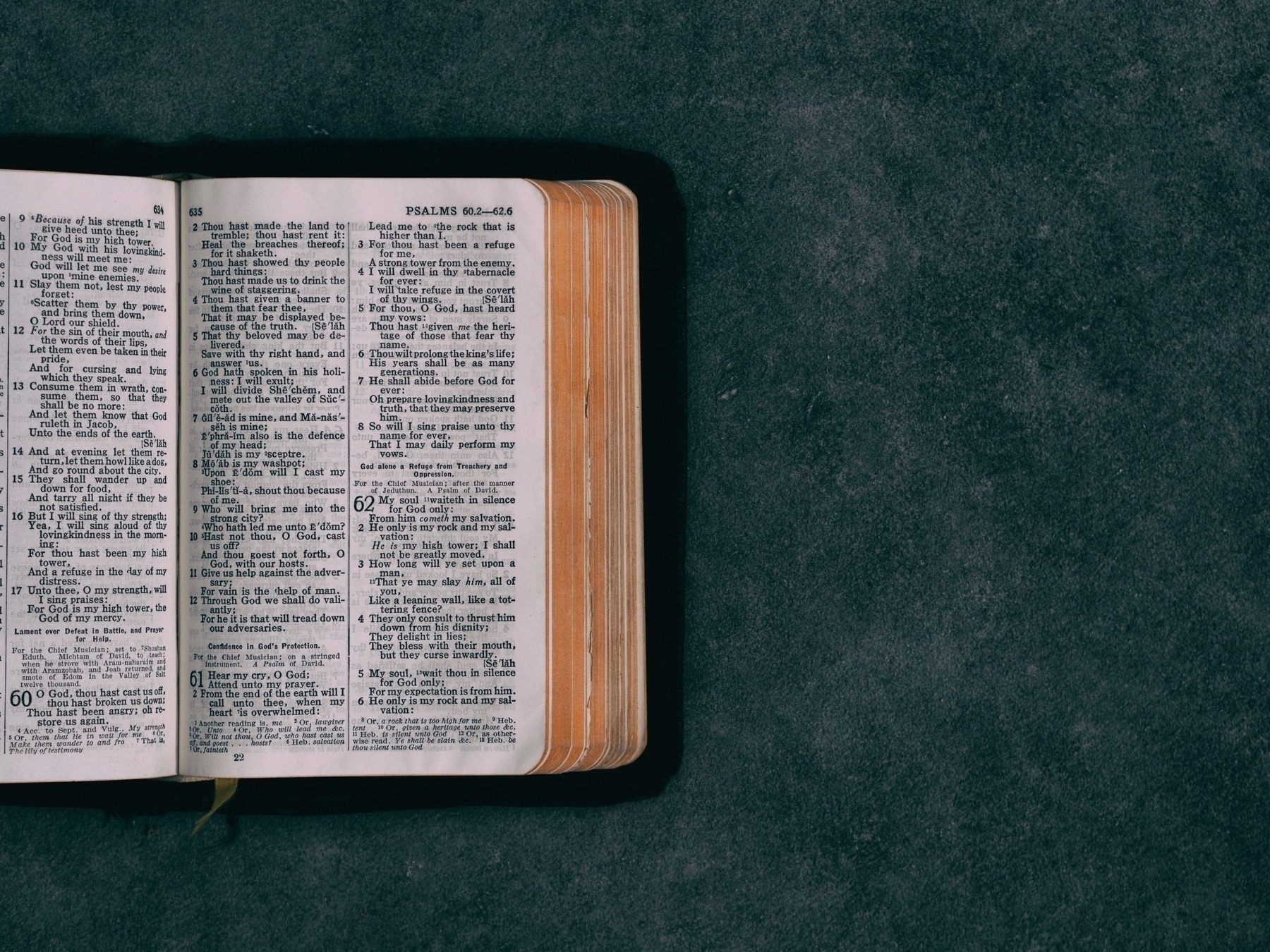Gross with Envy

Psalm 51:1-12; Habakkuk 3:2-13; John 12:1-11
Meanwhile a large crowd of Jews found out that Jesus was there and came, not only because of him but also to see Lazarus, whom he had raised from the dead. So the chief priests made plans to kill Lazarus as well, for on account of him many of the Jews were going over to Jesus and believing in him. (John 12:9-11)
Sometimes I read things in the Scriptures and just shake my head at folks. Kind of a, “can you believe these people?”
Take The Mercy

Psalm 51:1-12; Exodus 30:1-10; Hebrews 4:14-5:4
Now that we know what we have—Jesus, this great High Priest with ready access to God—let’s not let it slip through our fingers. We don’t have a priest who is out of touch with our reality. He’s been through weakness and testing, experienced it all—all but the sin. So let’s walk right up to him and get what he is so ready to give. Take the mercy, accept the help. (Hebrews 4:14-16, The Message )
I have mentioned it before, but I will mention it again, reading the Scriptures in The Message is so refreshing. It takes familiar passages and brings them to life.
Today, I am struck by the very last phrase in the passage. In the NIV that last verse is translated this way, “Let us then approach God’s throne of grace with confidence, so that we may receive mercy and find grace to help us in our time of need.” This is beautiful too and one of my favorite passages in the whole of the Bible.
But, when I read, “Take the mercy, accept the help,” it just hits me differently.
In my arrogance I don’t think I need mercy or help. I certainly don’t want mercy or help. By defintion those things mean that I am in need.
Being in need is not something that I would ever admit to. Why? Because I’m filled with pride and arrogance. I am someone who values being able to stand on my own two feet without anyone’s help.
Yet, the reality is that I do need mercy and help. I can not live this life on my own.
I am in need.
So, I’m challenged again to come to the presence of the Divine and find that mercy and help.
Get Off Your Horse

Psalm 51:1-12; Isaiah 30:15-18; Hebrews 4:1-13
GOD, the Master, The Holy of Israel, has this solemn counsel: “Your salvation requires you to turn back to me and stop your silly efforts to save yourselves. Your strength will come from settling down in complete dependence on me— The very thing you’ve been unwilling to do. You’ve said, ‘No way! We’ll rush off on horseback!’ You’ll rush off, all right! Just not far enough! You’ve said, ‘We’ll ride off on fast horses!’ Do you think your pursuers ride old nags? Think again: A thousand of you will scatter before one attacker. Before a mere five you’ll all run off. There’ll be nothing left of you— a flagpole on a hill with no flag, a signpost on a roadside with the sign torn off. But GOD’s not finished. He’s waiting around to be gracious to you. He’s gathering strength to show mercy to you. GOD takes the time to do everything right—everything. Those who wait around for him are the lucky ones.” (Isaiah 30:15-18m The Message)This makes me think of how so many in the Christian world today are looking elsewhere for their salvation.
So many of us are looking to trust in politicians and power to “save us from the world.” Yet, that’s not what we are called to do. No, we are called to trust in the Christ of Calvary.
What a ridiculous and outdated notion, right? To trust in a dying Christ. To trust in one who willingly chooses the path of death and weakness and apparent failure?
This Christ calls us to likewise take up our cross and follow him.
This Christ that willingly eschewed the power of this world and instead empty himself to become a servant.
This Christ that chose the way of self-sacrifice for the sake of redemption, reconciliation, and restoration.
What will I clamor after?
Oh, that I would choose the way of the Christ of Calvary and not the power that corrupts.
The Test

Psalm 107:1-16; Numbers 20:1-13; 1 Corinthians 10:6-13
No testing has overtaken you that is not common to everyone. God is faithful, and he will not let you be tested beyond your strength, but with the testing he will also provide the way out so that you may be able to endure it. (1 Cor 10:13)
I am reminded this morning that the tests that come to me are not unique to me. They are common to everyone. Even though, when we are walking through seasons of testing it seems like we are alone, we are not.
The tests that I face are ones that others are going through or have gone through. So, I can lean into community. Others will be able to empathize with me. In so doing, they will help provide me with the encouragement to continue persevering. It’s so hard to press on when we believe ourselves to be alone.
Secondly, we are promised that God is with us in our testing. There will always be a way out and it will not be more than we can bear. The tests that we face will be ones that stretch us but are not beyond us. We may feel like the testing is beyond us. Yet, the promise is that we can trust that they are not beyond our strength.
I am deeply encouraged by these truths. In the Psalm we read that God is faithful and God’s love endures. How do we experience that love and faithfulness? We do so by crying out in prayer.
Prayer is the center of our experience with the Divine. It is in prayer that we come into the presence of God. It is in prayer that we find help in our times of struggle. It is in prayer that our fears and anxiety is relieved.
Today, I am wrestling with this question: “Am I praying or am I simply trying to fix everything on my own?”
Can I Wait?
Psalm 107:1-3, 17-22; Daniel 12:5-13; Ephesians 1:7-14

Ephesians chapter one is just one of those passages that I love. You can sense the excitement of Paul as he pours out his heart to this congregation. It feels like if he were saying this to you, the pace of his speaking would be getting faster and faster. He seems to be almost overwhelmed in his joy.
I think that sometimes that we think he is so excited simply because of his own salvation. But, I think there’s something else going on here.
When I read Ephesians 1 next to Daniel 12 and Psalm 107, I remember again that Paul is writing from a context. But, not just any context, a religious context that had been in place for nearly 1000 years. The people of God had been waiting and hoping for a really long time to see God make good on his promises.
For Paul, God finally had!
God had made good on his promises displaying his grace.
This long awaited for moment had finally arrived and Paul was overwhelmed by joy because God had proved faithful.
I think one of the things that I am left with is where is my faithfulness? Can I trust that God will make good on promises? How long will I wait for God to do anything? Ten minutes?
I am praying that I would learn patient faithfulness. If I could, then I imagine I would walk through life with a greater sense of joy because I would have a greater sense of God’s grace.
Can I wait?
The Faithful Divine

Psalm 107:1-3, 17-22; Genesis 9:8-17; Ephesians 1:3-6
How blessed is God! And what a blessing he is! He’s the Father of our Master, Jesus Christ, and takes us to the high places of blessing in him. Long before he laid down earth’s foundations, he had us in mind, had settled on us as the focus of his love, to be made whole and holy by his love. Long, long ago he decided to adopt us into his family through Jesus Christ. (What pleasure he took in planning this!) He wanted us to enter into the celebration of his lavish gift-giving by the hand of his beloved Son. (Ephesians 1:3-6, *The Message*)
One of the central themes, if not the central theme, of the Scriptures is covenant.
God makes promises. God cuts covenants with God’s people. Throughout the Scriptures we see the experience of humanity engaging with God and seeing how at every turn God makes good on God’s covenant.
Again and again and again.
Ultimately, we see God bring the covenant promises to fruition and fulfillment through Christ.
This morning I’m left wondering, “Do I trust that the faithfulness of Christ is enough?”
Giving Myself or Withholding?
Psalm 84; 2 Chronicles 29:1-11, 16-19; Hebrews 9:23-28

Hebrews is one of those pieces of Scripture that is difficult to understand. Largely because contemporary Christians don’t know the Old Testament very well. We also don’t know the context and the importance of the role that the Temple played in the life of the people of God before Christ.
In almost every faith tradition before the coming of Christ the offering of sacrifices with animals was commonplace. It was simply the way that things were done. But, now things were different. This was transformational.
But he has appeared once for all at the culmination of the ages to do away with sin by the sacrifice of himself. (Hebrews 9:26b, NIV)
There was no longer a need for an ongoing sacrifice. Christ through his self-sacrifice offered a perfect sacrifice. Christ gave himself and therefore fulfilled the needed offering for sin forever.
As I process this, this morning, it strikes me that the reason people offered sacrifice was so that they could be connected with God. They didn’t want anything to be between them and their God.
Christ has now cleared the way for us to never be separated again.
What’s fascinating to me though is the connection that we find between this conversation about Christ and Paul’s command in Romans 12 that our spiritual act of worship is to offer ourselves to Christ.
You see, we follow after the way of Jesus. He offered himself as a sacrifice to deal with sin. We now offer ourselves spiritually as an act of worship.
What I’m wrestling with today is, “Am I offering myself as an act of spiritual worship or I am withholding myself from the one who gave everything on my behalf?”
The Temple and the Presence
Psalm 84; 1 Kings 6:1-4, 21-22; 1 Corinthians 3:10-23

Don’t you know that you are God’s temple and God’s Spirit lives in you? (1 Corinthians 3:16)
One of the things that I really like about reading the lectionary is that we get this passages that interconnect on similar themes. In Psalm 84 and 1 Kings we get these discussions about the Temple. We learn of its majesty and glory.
Then we come 1 Corinthians 3 and Paul says that the followers of Jesus are the Temple.
Mind blowing!
I am not sure that we truly grasp the ramifications of this re-framing.
Why do people love being at the Temple and why was the Temple with such majesty and glory? Because the Temple was believed to the place where God was present. Now, we have Paul saying, “You are the Temple! God is in you!”
This passage is often used as an argument for eating healthy, exercising, and not drinking alcohol or not smoking. That totally misses the entire point! That’s not at all what Paul is saying here. With the people of God now being the Temple, it means that wherever we are God is. Congregational buildings are no more holy than a coffee shop or a bar. There is nothing special about them. What makes them special is the people in them. When followers of Jesus gather together it is a veritable collection temples!
“Next to the Blessed Sacrament itself, your neighbor is the holiest object presented to your senses.” ― C.S. Lewis, The Weight of Glory
This quote from Lewis is more true than any of us realize!
The question I’m wrestling with today is, “Do I believe what Paul says? Is the very presence of God all around me in all these people?”
Hidden Faults
Psalm 19; Exodus 19:1-9a; 1 Peter 2:4-10

Sometimes I read through these passages and only one thing strikes me. Sometimes, I see a whole bunch of things. It’s never the same twice. Psalm 19 is a passage that has been significant for Amy and I. We loved reading it together while looking at the stars and moon when we were dating. Cheesy, I know, but hey, we are cheesy. The 1 Peter 2:4-10 is one of those passages that I seem to come back to all the time in life and ministry and the Exodus passages is the foundation for it.
So what struck me today?
They (God's words) are more precious than gold, than much pure gold; they are sweeter than honey, than honey from the honeycomb. By them your servant is warned; in keeping them there is great reward. But who can discern their own errors? Forgive my hidden faults. Keep your servant also from willful sins; may they not rule over me. Then I will be blameless, innocent of great transgression. (Psalm 19:10-13)
What really leapt off the page, “But who can discern their own errors?" Woof. Ain’t that the truth! We so often think we know ourselves so well, but the fact of the matter is we need something or someone outside us to help us discern our errors.
The Psalmist here suggests that God’s words can do so. I think in some way that may be true, if we allow ourselves to be honest. However, I think more so we need to be dealing with the Scriptures in community with other people we trust.
Either way, we have to choose to be teachable so as to receive the discerning input in to our lives. I too often don’t want to hear about my errors and I certainly don’t want hidden faults revealed. Yet, if we can enter into that process then we can be “innocent of great transgressions."
You see, if I can deal with the hidden faults, they never become great transgressions. When I have struggled with various sin issues in my life the root of them is often something small that I had not dealt with.
Today I am asking the Divine to show me a hidden fault that I need to bring into the light.
You Will Be My People
Psalm 105:1-11, 37-45; Jeremiah 30:12-22; John 12:36-43
So you will be my people, and I will be your God. (Jeremiah 30:22, NIV)
This verse is couched in the midst of some of the harshest criticisms of the people of God in the whole Bible. Jeremiah, the weeping prophet, pulls no punches.
As you’re reading the whole thing feels so hopeless.
Until you get to verse 22.
You will be my people. I will be your God.
This is the refrain that connects what happened before Jesus with what happens after the resurrection. This is the message of hope. To be claimed by God as God’s. There is not much more beautiful than this.
It strikes me as I ponder this beautiful refrain how often I find myself trying to undo this.
If I’m honest with myself there are so many Christians (I just deleted the quotes from around Christian) that I don’t want to include. I am guessing that I’m not alone in this.
But, here’s the thing, at one of the darkest times in the history of the people of God when they had gone astray and God was about to judge them, God ultimately states, “You will be my people and I will be your God.” If God can forgive and if God can welcome the people back, who do I think I am to say that certain people shouldn’t be included?
In my frustration with my family in Christ I must remember that they are indeed family. These are people created in God’s image that God has declared, “You will be my people and I will be your God.”
Today I’m asking this question, “Will I love well even the people who I would prefer to not include at the family dinner?”

Faith and Trust
Psalm 105:1-11, 37-45; Genesis 22:1-19; Hebrews 11:1-3, 13-19
By faith Abraham, when God tested him, offered Isaac as a sacrifice. He who had embraced the promises was about to sacrifice his one and only son, even though God had said to him, “It is through Isaac that your offspring will be reckoned.” Abraham reasoned that God could even raise the dead, and so in a manner of speaking he did receive Isaac back from death. Hebrews 11:17-19, NIV
Reading these passages alongside one another I am reminded again that “faith” is not what we often think it is. Too often we equate “faith” with “belief.” But, when I read the stories of “faith” I am reminded that “faith” equates with “trust.”
Faith, the kind of faith that Abraham displayed is one that is about trusting the God of the Promise. He trusted that God would bring about his promise so then he knew that God would in some way bring Isaac back from the dead.
This is why we don’t need to worry about doubt concerning faith. I can doubt and wrestle and still fully trust.
As I think about these passages today I wonder am I really willing to trust the Divine? Or does my trust dissipate when things don’t make sense? The test of trust comes when things are not easy. It’s easy to trust when everything is easy.
Do I trust?

Psalm 105:1-11, 37-45; Genesis 21:1-7; Hebrews 1:8-12
He remembers his covenant forever, the promise he made, for a thousand generations, the covenant he made with Abraham, the oath he swore to Isaac.
Reading all these passages together it strikes me this morning that I don’t necessarily have faith in any of this.
Do you?
Faith is “trust”.
When I take a deep look at much of how I live it is marked by lack of trust. I think, when I am honest with myself I live too much of my life as though God will not remember his covenant promises. If I did believe it, I think I would likely have a greater patience in prayer. I intellectually ascent to the things in these passages. I believe them. But, I don’t know if I faith in any of it.
There is critical distinction between faith and belief. Belief is something of the mind. Faith is rooted in trust which is displayed in action.
When was the last time that I prayed long and faithfully for something? Do I rest in the knowledge that God will work out all things for the good of those who believe? Too often I do not.
This morning I am wrestling with the following, “Do I have faith in any of this?”


Psalm 22:23-31; Genesis 16:1-6; Romans 4:1-12
Genesis 16:1-6, which is the opening of the story of Hagar and Ishmael. This tells about how Abraham’s wife wanted a child so badly that she offered up her slave Hagar to Abraham and Hagar conceives. They took the promise God had offered in Genesis 15 into their own hands.
Romans 4:1-12 talks about Abraham’s faith being credited to him as righteousness.
When you read those two passages side by side it is shocking.
Abraham acts in a way that is anything but righteous. He impregnated a woman that is not his wife and he then leaves this woman to be abused by his wife.
Yet, Romans 4 reminds us that this righteousness that was credited to Abraham was not based on anything he did. It was based solely on the promise that God made. His righteousness was credited to him before this scene plays out.
Think about that.
Abraham is deeply flawed, deeply sinful, and in many ways pretty awful. So was his wife.
Yet, he is considered righteous in spite of this.
God’s grace is so overwhelming that even a man like Abraham can become the spiritual father of the nations. God’s faithfulness is greater than any man’s. God’s grace is beyond anything that we can ever imagine.
I am reminded by this passage that I don’t need to take things into my own hands. I can trust the God of grace to bring his plans to fruition. When I trust God there is rest.

Psalm 22:23-31; Genesis 15:1-6, 12-18; Romans 3:21-31
Where, then, is boasting? It is excluded. Because of what law? The law that requires works? No, because of the law that requires faith. For we maintain that a person is justified by faith apart from the works of the law.
All of these passages are remarkable.
I am amazed by the fact that in Genesis 15:12-18 Abram is told there will be a time of enslavement. This promise from God is not going to be simply roses and puppies. No, there would be hardship. There would be need of saving.
Then, this passage in Romans 3 is always one that leaves me shaking my head in awe and amazement. Why? Because it undoes so much of my self-righteousness. It is the great reminder that is Christ’s faithfulness and God’s action that sets people right with God. We don’t add a thing to it. There is nothing that we do.
God in God’s grace sets the world right by Christ’s faithfulness.
The grace that God lavishes on God’s creation is without limit. It is effective and unstoppable. God’s grace brings about its intended result.
I am recognizing again that I need to keep on killing off my ego. There is so much self-righteousness in me that has yet to be dealt with on so many levels.
Today, I’m wrestling with this question, “What do I trust more, my own self-righteousness or God’s grace in Christ?”
Psalm 77; Proverbs 30:1-9; Matthew 4:1-11

The tempting of Jesus in the wilderness by the enemy is one of those stories that I find to be quite insightful. It is also one of the stories that challenges me deeply. I’m not sure that I’d be able to pass the test.
As I think about this passage again this morning I am more and more aware that the interaction has a lot to do with power.
The first temptation is about food. I think I would call this the power to provide. Jesus has been fasting for forty days at this point and the enemy tells him to turn the rocks into bread (there are rocks in Palestine that look like loaves of bread). As a dad and a husband I feel a lot of pressure to provide. Not from anyone else, but from myself. I think if someone said, “Hey here’s this thing, just do this, and you’d have the power to provide forever,” I would probably do it and not think about it. Yet, Jesus in this moment determines to trust God to provide.
The second temptation is what I would call the power to protect. Jesus is tempted to throw himself off the top of the Temple to prove that God would protect him. Yet, Jesus determines not to put God to the test. Again, if I were offered the ability to have unlimited power to protect myself or my family what I do? I would fail the test. I want to say that I’d be willing to hold on to my principles and trust God but, I’m just not sure.
The final temptation is simply power for the sake of power. The enemy says all Jesus has to do is worship the enemy and all the world would be his. What would it take for me to de-center my worship of God? If I was offered the power over the kingdoms of the world would I take it? Again, I hope that I would choose to trust God. But, I just don’t know. In the Lord Of the Rings - Fellowship of the Ring, one of the key moments is when Gandalf refuses to take the Ring of Power from Frodo. He says that he would use it for good but it would corrupt him. When we are promised this kind of power it will inevitably corrupt us.
The upside down way of Jesus is sacrificial love. It is loving enemies and neighbors. It is choosing the cross over saving ourselves.

Psalm 77; Job 5:8-27; 1 Peter 3:8-18a
Summing up: Be agreeable, be sympathetic, be loving, be compassionate, be humble. That goes for all of you, no exceptions. No retaliation. No sharp-tongued sarcasm. Instead, bless—that’s your job, to bless. You’ll be a blessing and also get a blessing.
No exceptions.
It seems that we live in a world where we try to make exceptions to living the way that Peter describes here all the time. To seek to be agreeable, sympathetic, loving, compassionate, and humble we are told simply do not work any more.
It’s a fascinating thing to me that many Christians will tell you that we ought not live by these principles because it means that “enemies” of the faith will win.
We have so lost our way that to live by these principles is something that is considered “weak.”
No exceptions.
There is not any wiggle room here. There’s no “…but politics” or “…but culture war.”
Nah, if I claim to follow Jesus I am to live this way, all the time, no exceptions.
If I am trying to make excuses or devise exceptions to live as one who is agreeable, sympathetic, loving, compassionate, and humble then I need to take a good long look in the mirror.
Psalm 77; Job 4:1-21; Ephesians 2:1-10

I yell out to my God, I yell with all my might, I yell at the top of my lungs. He listens.
I’m not sure that there is a more comforting phrase for me in all the Scriptures than, “He listens.”
“He listens,” is a complete sentence.
It is remarkable to me that when I cry out to the Divine the Divine listens. I am constantly on a quest to understand what amazing grace means. As I sit here this morning with many things on my heart and my mind, I am struck by the reality that it is amazing grace that God listens.
Why would God listen to me? What is it about me that God would take any notice? Why would God care about what I have to say?
Because God loves me.
I love my children with all of who I am. When they talk, I listen. Even when they were small and couldn’t speak coherently I took great joy in listening to their rambling and mumbling. I don’t know anyone who ignores a baby that is talking to them, particularly when it’s your own child.
I imagine this must be what it’s like for God. This Creator God, the holy one, the sustainer of the universe, loves his creation without condition. This love, apparently, leads God to this place of intimacy where God listens.
This morning I’m pondering this question, “Do I really believe that God listens because he loves me?”
Psalm 25:1-10; Psalm 32; Matthew 9:2-13

Later when Jesus was eating supper at Matthew’s house with his close followers, a lot of disreputable characters came and joined them. When the Pharisees saw him keeping this kind of company, they had a fit, and lit into Jesus’ followers. “What kind of example is this from your Teacher, acting cozy with crooks and misfits?”
This story about what happened after the calling of Matthew resonates so deeply with me. I just love everything about it. First, the fact that Jesus calls Matthew, a tax collector, to join him as a disciple makes me smile. Tax Collectors were (and are) some of the most despised people in Palestine. He was considered a traitor to his people. Matthew was probably skimming and probably taxing the people a bit more than he ought to line his own pockets. Matthew was not a guy that anyone in Jesus' merry band would have chosen to associate with.
But, then it gets better.
Matthew throws Jesus a party and all kinds of disreputable characters show up. The Pharisees are nearly apoplectic.
Over the course of my years in ministry I have found myself associating less and less with church people. I find myself standing on the outside looking in at Christian subculture. My people are the ones at the pubs and cafes.
It’s pretty funny to receive the scorn of the modern day Pharisees.
I imagine Jesus just smirking and shaking his head as he responded to their critique, “Who needs a doctor: the healthy or the sick? Go figure out what this Scripture means: ‘I’m after mercy, not religion.’ I’m here to invite outsiders, not coddle insiders.”
Too many of us are way too worried about being “above reproach” and not worried enough about loving well.
It’s just too easy to get focused on coddling insiders than it is to invite outsiders. For pastors, in particular, the insiders are our “customers.” We forget that our primary responsibility is not to the 99 but to the 1. What’s just as sad is that the 99 forget that they were at one time the 1.
This morning I’m pondering the reality that as a pastor I have this dual calling. The call to care for the insiders and those on the outside. How do I orient myself to this dual calling? How do I consistently hold a posture of loving well?
Psalm 25:1-10; Daniel 9:15-25a; 2 Timothy 4:1-5

But you—keep your eye on what you’re doing; accept the hard times along with the good; keep the Message alive; do a thorough job as God’s servant.
Every time I read this little passage from 2 Timothy 4 and Paul’s charge to his protege, I am reminded that there are always two kinds of times. There are good times and there are bad times.
I too often forget that reality.
I tend to be a bit of an optimist and assume that good times are the standard. I have friends who are a bit more on the pessimistic side of the coin and they assume that bad times are the standard. But, the reality is somewhere in between, both good and bad times. We should expect both.
Beyond that, I need to recognize that in anything, good or bad, that it is never all good or all bad. No, the good and the bad are intermingled together. Often times we cannot pull them apart. An honest assessment of any situation is the both/and not the either/or.
As I continue to grow and mature I find that understanding that in any situation there are both good and bad to it, I am able to find contentment.
Paul is famous for saying that he has learned to be content in any situation. I am beginning to believe that contentment is rooted in his understanding that good and bad are intertwined. In other words he expects to experience both. When the good comes, he rejoices. When the bad comes he is not surprised but is able to endure.
I think enduring the bad is able to be done because we are confident that the good is coming.
One of my favorite bands, The String Cheese Incident have a song called “Good Times Are Around The Bend”. It’s a joyful reminder that though we may face something hard, there will be good at some point.
Life is not dualistic. It’s a constant continuum. It’s not either/or but both/and. Not good or bad. But, good and bad inseparably mixed together so that we may rejoice and endure.
One Who Receives Grace
Psalm 25:1-10; Daniel 9:1-14; 1 John 1:3-10

I love that passage from 1 John that almost feels contradictory.
On the one hand, if we claim to be in the light but still bounce around in darkness we are liars. One the other hand, if we claim to be without sin then we are also liars.
It almost seems hopeless, doesn't it?
How can someone be in the light and still be struggling with sin? Aren't we supposed to be perfect and holy? Aren't we supposed to be free from the darkness?
This to me is the beauty of the Way of Christ. There is a standard that we are called to, a standard of holiness in the light. Yet, there is a reality that we will not be perfect and we will struggle with things. The Way of Christ simply says, “Own it. Embrace the reality that you need grace, forgiveness, and mercy.”
To be in the light is not to be perfect. To be in the light is to be honest. To live with integrity. To be one who acknowledges one's own imperfection.
To be one who receives grace.
What an overwhelming thought! To be in the way of Christ is to be one who receives grace. To be in the way of Christ is not to be perfect, it is not to have it all together, it is recognize that I don't have it all together and nobody else does either.
So, grace abounds!
—
If you made it this far, thank you for reading! If you found this helpful, insightful, interesting, or even just kind of average, would you please share it with your social feed?
If you aren't receiving these posts in your inbox please subscribe right here: